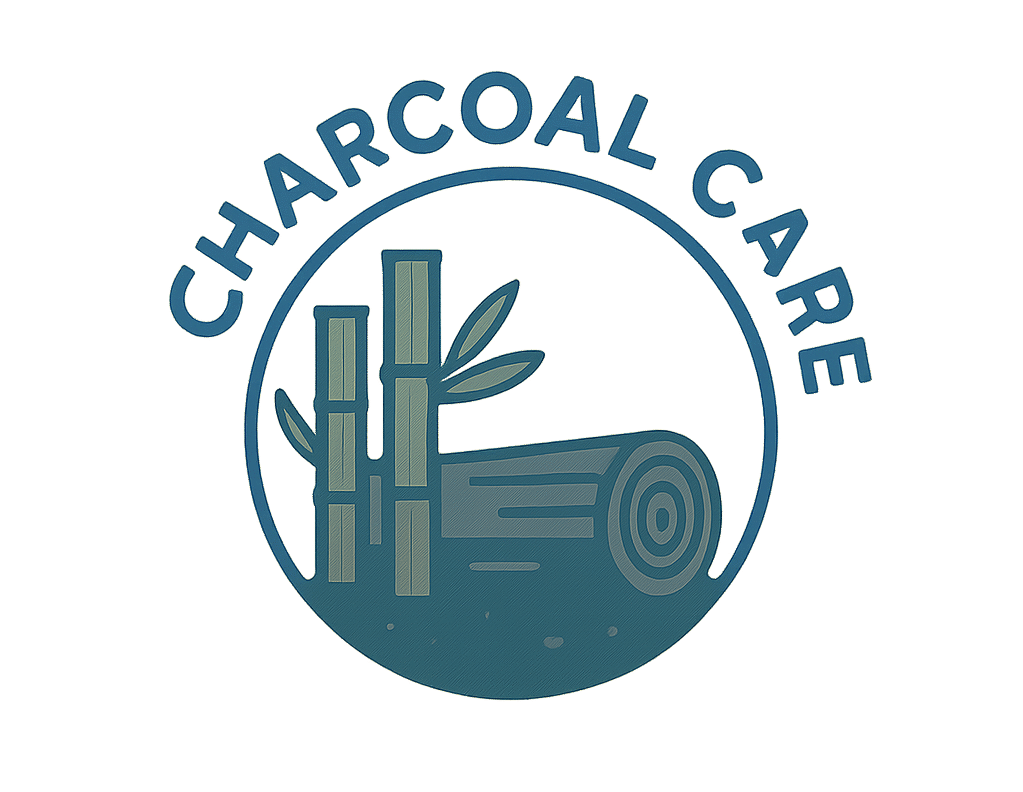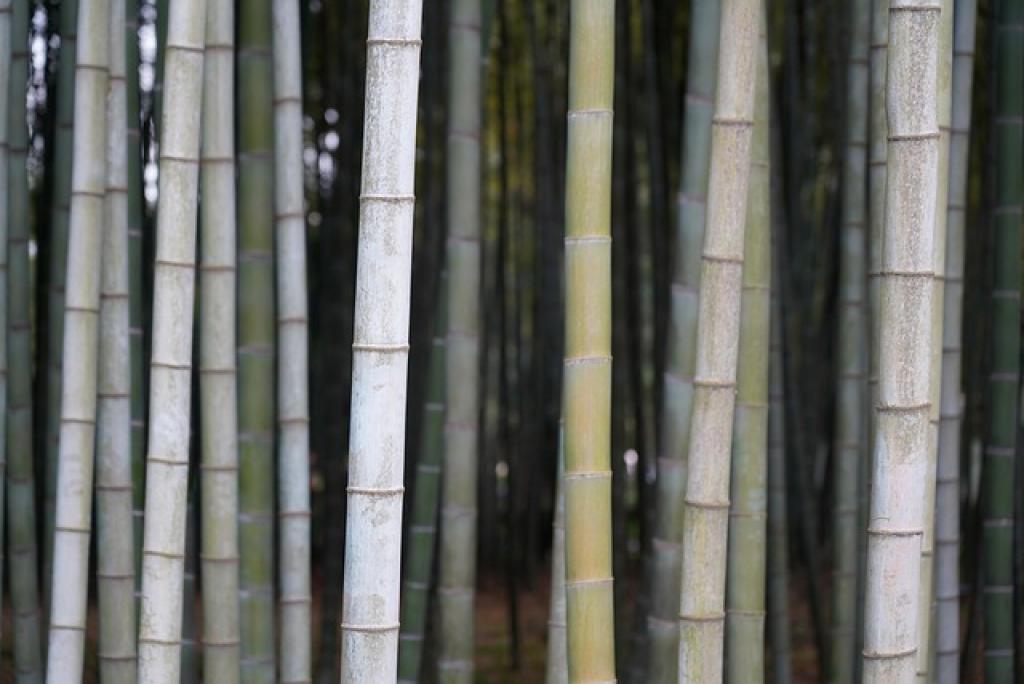Bamboo charcoal: a term that might sound exotic, yet it’s finding its way into more homes, products, and conversations every day. But what exactly is this intriguing substance, and why is it garnering so much attention?
At its core, bamboo charcoal is what you get after subjecting bamboo to high temperatures over an extended period, between 800°C to 1200°C. This process transforms the sturdy plant into a porous, carbon-rich material brimming with benefits, from air purification to skincare, and even within household products.
Why bamboo? This fast-growing grass (yes, it’s technically grass!) is sustainable and eco-friendly, making it a popular choice for conscientious consumers. Its unique properties allow it to absorb odors and impurities, which is why you’ll spot it everywhere from air purifying bags to toothpaste.
Dive into the world of bamboo charcoal to discover its history, how it’s made, and why it’s becoming a trusted green alternative in environmentally aware households. Whether you’re passionate about sustainability, intrigued by alternative health options, or simply curious, bamboo charcoal offers a fascinating blend of tradition and innovation.
What Is Bamboo Charcoal?
Bamboo charcoal is a versatile material derived from, you guessed it, bamboo! Through a careful process involving pyrolysis, which means burning in the absence of oxygen, bamboo is transformed into a rich, carbon-infused substance.
Its standout characteristic is its highly porous structure. This porosity gives it a remarkable ability to absorb pollutants, impurities, and even moisture. That’s why bamboo charcoal is celebrated not just in households for odor control, but in beauty products to combat excess oil and toxins.
What makes bamboo charcoal even more fascinating is its eco-friendliness. Bamboo, as a renewable resource, grows back rapidly and robustly, making it an ideal material for sustainable practices. Plus, producing bamboo charcoal has a lower environmental impact compared to traditional hardwood charcoal.
As a multifaceted player, this humble charcoal moves beyond its traditional use as a fuel source, venturing into modern realms like personal care and air purification. Its journey from dense bamboo to porous wonder material showcases nature’s incredible ingenuity and the potential of combining age-old practices with today’s sustainable technology.
How Is Bamboo Charcoal Made?
Creating bamboo charcoal involves a meticulous transformation, starting with the careful selection of mature bamboo stalks. The choice of bamboo is crucial—only mature plants possess the density and properties favored for quality charcoal.
The Pyrolysis Process
Once the bamboo is harvested, it’s cut into manageable sections and loaded into an oven or kiln. It is then subjected to pyrolysis, where it’s cooked at extremely high temperatures without oxygen. This stage requires precision, as temperatures often exceed 800°C to ensure complete carbonization.
During this process, the bamboo releases volatile gases and oxygen, leaving behind charcoal that’s rich in carbon. This primary transformation phase can take several days, depending on the kiln size and bamboo volume.
Final Touches
After the initial carbonization, the bamboo charcoal undergoes a cooling phase, crucial for stabilizing its structure. It’s then cleaned and sometimes finely ground, especially for use in cosmetics and health products.
The entire method hinges on balancing time and temperature. Each step contributes to the final product’s quality, enhancing its signature porous structure and making it the resourceful marvel celebrated in various applications today.
Benefits of Bamboo Charcoal
The allure of bamboo charcoal lies in its multifaceted benefits that cater to both wellness enthusiasts and environmentally conscious consumers alike.
Remarkable Absorptive Capacity
One of the standout benefits is its impressive absorptive power. With a porous structure akin to a fine sponge, bamboo charcoal can trap toxins, impurities, and unpleasant odors effortlessly. This makes it a powerful air purifier, allowing it to significantly freshen up living spaces, refrigerators, and even shoes.
In skincare, this quality translates to effectively drawing out excess oils and impurities from the skin, making bamboo charcoal a popular ingredient in face masks and cleansers.
Eco-Friendly and Sustainable
Embracing bamboo charcoal means supporting sustainability. Because bamboo grows rapidly without the need for pesticides, it’s an eco-friendly resource that doesn’t deplete environments. Using it helps reduce reliance on non-renewable resources, aligning with a greener lifestyle.
Bamboo charcoal also finds its place in health and personal care, being infused in products like toothbrushes and sponges. Its natural antibacterial properties help maintain hygiene and freshness, adding to its versatility and appeal.
Incorporating bamboo charcoal into daily life not only harnesses a tradition of natural wellness but also encourages conscious, sustainable living—a win-win for health and the planet.
Using Bamboo Charcoal in Everyday Life
Integrating bamboo charcoal into daily routines is simpler than you might think, thanks to its versatile nature and the variety of products available.
In your home, bamboo charcoal bags can be strategically placed in closets, bathrooms, and cars to neutralize odors and control humidity. They are chemical-free and easy to rejuvenate: simply lay them in the sunlight every few months to refresh their absorptive abilities.
When it comes to personal care, look for bamboo charcoal-infused skincare products. Charcoal face masks and cleansers help detoxify your skin by removing impurities and reducing oiliness. For oral hygiene, toothbrushes with bamboo charcoal-infused bristles can aid in cleaning teeth more effectively by utilizing the natural antibacterial properties.
In the kitchen, bamboo charcoal can even be used to purify water. Dropping a piece of bamboo charcoal into your water pitcher can help filter out impurities and improve taste naturally, without any synthetic filters.
Embrace the sustainable charm of bamboo charcoal by exploring its space in bedding and linens, too. Charcoal-infused fabrics offer antimicrobial properties, ensuring fresher, longer-lasting wear for those with sensitive skin or allergies.
Each small step to incorporate bamboo charcoal into your routine is a stride towards a more natural, eco-friendly lifestyle.

Is Bamboo Charcoal Eco-Friendly?
Bamboo charcoal stands tall as an eco-friendly hero in today’s green marketplace, and here’s why it’s a champion of sustainability.
Rapidly Renewable Resource
Bamboo is a renewable resource, flourishing at a remarkable rate compared to traditional trees used for hardwood charcoal. Some bamboo species can grow up to three feet in just a day, significantly reducing the time to harvest and replenish.
Besides this, bamboo’s rapid growth cycle doesn’t require replanting after harvesting. This allows for continuous production without disrupting the surrounding ecosystem, minimizing soil erosion and habitat loss.
Minimal Environmental Impact
The process of making bamboo charcoal itself is low-impact. It generally uses minimal chemicals, relying on natural high-temperature methods to achieve carbonization. This reduces the footprint left compared to more chemically intensive manufacturing processes.
Bamboo also absorbs more carbon dioxide than an equivalent stand of trees, contributing positively to offsetting carbon emissions. By choosing bamboo charcoal, consumers support a cycle that helps mitigate deforestation and promotes the use of sustainable resources.
In essence, bamboo charcoal supports eco-conscious decisions, bridging the gap between utility and sustainability with minimal environmental burden, making it a smart choice for the planet-conscious consumer.
Exploring Different Types of Bamboo Charcoal Products
With its growing popularity, bamboo charcoal has inspired an impressive array of products that fit seamlessly into diverse aspects of daily life.
In the realm of home care, bamboo charcoal bags are a prevalent option. These small, breathable sachets are filled with charcoal and excel at absorbing odors and moisture in spaces like closets, gyms, and cars, promoting a fresher environment.
For health and beauty enthusiasts, the offerings are just as exciting. Facial masks and scrubs containing bamboo charcoal promise to deeply cleanse the skin, while soaps leverage its antibacterial properties to maintain clear, radiant skin. Even oral care is enhanced with bamboo charcoal, with toothbrushes and toothpaste that promise better dental health by fighting bacteria and reducing stains.
Bamboo charcoal also features in innovative home and kitchen products. From air purifiers to water filters, it offers a natural, chemical-free option for maintaining a healthier living space. Fashion accessories like socks and undergarments use bamboo charcoal-infused fibers for their moisture-wicking and odor-fighting abilities.
With such a broad spectrum of uses, bamboo charcoal products offer a delightful blend of functionality and environmental consciousness, inviting everyone to explore their benefits.
Understanding the Health Properties of Bamboo Charcoal
Bamboo charcoal’s remarkable health properties stem from its unique ability to absorb and eliminate toxins, providing benefits both externally and internally.
Externally, bamboo charcoal is a sought-after component in skincare products due to its high absorbency. It acts like a magnet, drawing out impurities and oils from the skin. This makes it effective in treating acne and preventing breakouts, catering especially to those with oily or acne-prone skin.
When incorporated into cosmetic products such as masks and cleansers, bamboo charcoal helps unclog pores, leaving the skin feeling smoother and visibly clearer. It also gently exfoliates, helping to remove dead skin cells without irritating sensitive skin.
Internally, bamboo charcoal has found a role in filtration systems, including water purifiers. It efficiently traps impurities, leading to cleaner and more wholesome water. This purification process capitalizes on its natural ability to remove pesticides and other harmful substances.
Although primarily external, the health benefits of bamboo charcoal contribute to overall well-being, offering natural solutions for common health concerns. By integrating bamboo charcoal into both health and daily routines, you embrace an approach that is grounded in nature and supported by age-old traditions.
Conclusion: Incorporating Bamboo Charcoal Into Your Routine
Incorporating bamboo charcoal into your everyday routine offers a natural, sustainable path to enhancing health and well-being. Its journey from raw bamboo to a diverse array of products is a testament to its versatility and eco-friendliness, making it an appealing choice for conscientious consumers.
Whether you’re seeking to purify your home with air cleansing bags, rejuvenate your skin with detoxifying masks, or ensure cleaner water through natural filtration, bamboo charcoal provides a straightforward, chemical-free solution. These applications highlight the remarkable adaptability of bamboo charcoal, seamlessly fitting into the lives of those who prioritize both health and sustainability.
What’s more, choosing bamboo charcoal is not just about immediate benefits; it’s a step toward a more sustainable future. By opting for products derived from rapidly renewable resources, you contribute to reducing environmental impact and supporting practices that respect our planet’s delicate balance.
Transitioning to bamboo charcoal products requires minimal effort but promises a maximum impact on both personal health and environmental sustainability. Each small change in your daily routine can lead to significant improvements, creating a cumulative effect that benefits both you and the world around you.
In essence, embracing the simple yet powerful properties of bamboo charcoal enables a lifestyle that values natural health solutions and eco-friendly choices. It’s a transformative shift, encouraging a harmonious relationship with nature as you integrate this timeless, versatile material into your life.

